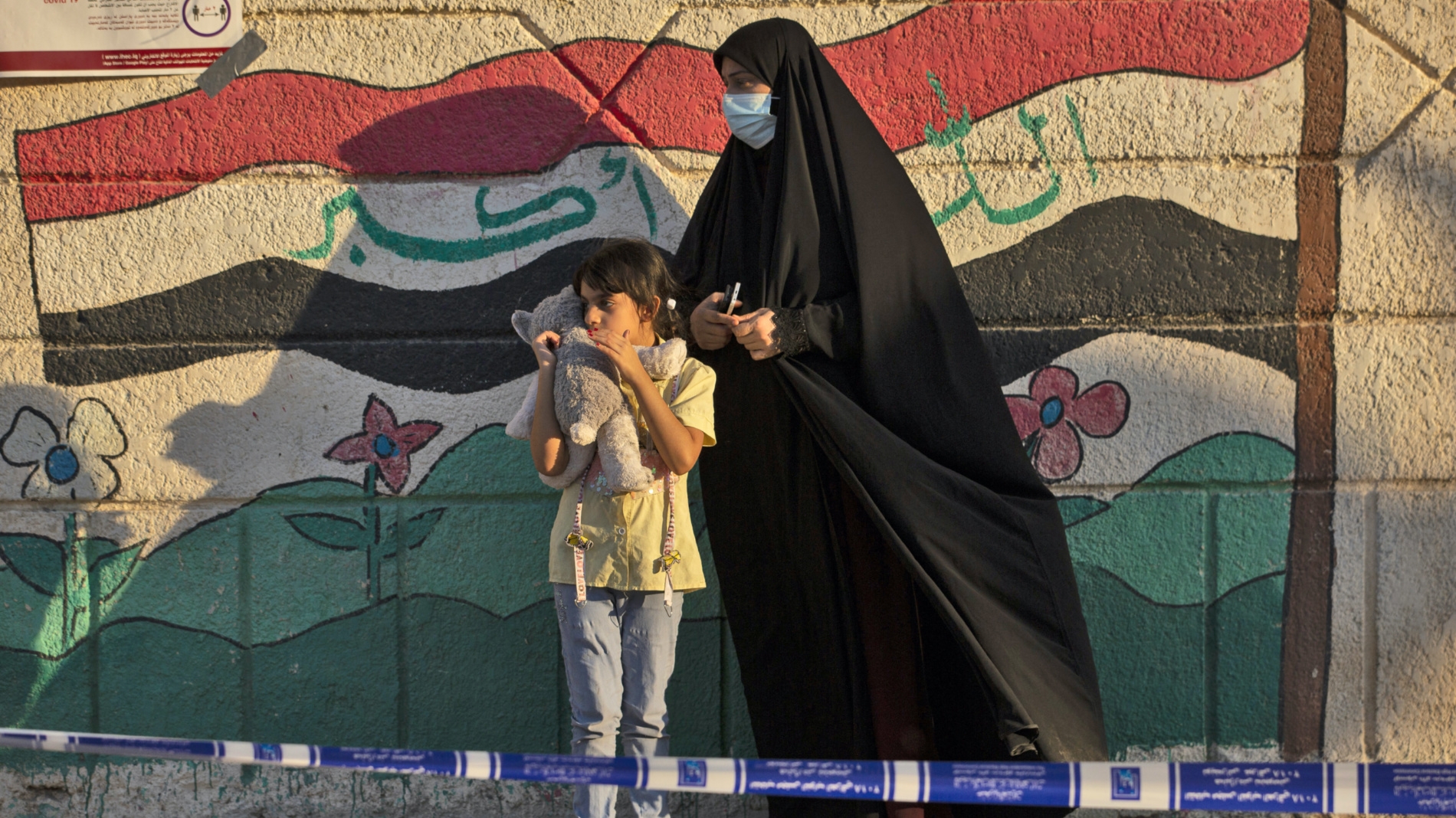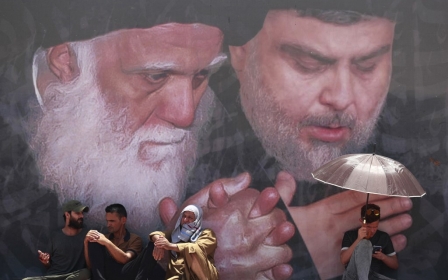Iraqi NGO demands answers from authorities after attack on human rights workshop

On the morning of 25 June, three men claiming to be from National Security Service forces, stormed a training workshop on gender-based violence in Iraq’s southern city of Basra.
The men, who were wearing civilian clothes and had arrived in a tinted GXR vehicle, told the organisers of the Advocacy Campaigns Against Gender-Based Violence workshop, set up by al-Firdaws Society, that training on such topics is not allowed, both now and in the future.
Fatima Bahadly, founder of al-Firdaws, condemned the attack on the workshop and demanded that the authorities in Basra release a public statement regarding the incident.
“[They need to] clearly explain the circumstances to the media outlets, or we will otherwise go to the judiciary and follow up all the legal means to secure our rights,” Bahadly told Middle East Eye.
Bahadly, a prominent Iraqi rights activist whose 26-year-old son was found shot dead last year, has received death threats over the years for her work on human rights issues in Iraq and has faced severe social pressure from her own tribe.
Stay informed with MEE's newsletters
Sign up to get the latest alerts, insights and analysis, starting with Turkey Unpacked
“We have the right according to the Iraqi constitution to practise our work,” Bahadly said.
“Our rights have been violated as human beings, Iraqi citizens and as an NGO working under Iraqi law. During the storming of our NGO, we were subjected to material, physical and significant harm.”
Al-Firdaws Society, founded in 2003, focuses on the protection and education of women and campaigns against the recruitment of young people into armed groups. It received a certificate of registration from the NGOs directorate in the General Secretariat of the Council of Ministers in December 2004, granting it the full right to practise its activities according to the provisions of the Iraqi constitutions.
“Unfortunately, we are being subjected daily to some new abusive behaviour by local governments or the central one, which can only be described as an authoritarian behaviour and as steps to silence any opportunity for the Iraqi people to call for their rights,” Ali al-Bayati, former member of Iraqi human rights committee, told MEE.
“As human rights defenders, we are all under threat and at risk of either security raids or prosecution under the slogan of defamation, or of being targeted by unknown groups - who may be unknown to us, but known to officials.
"I’m trying to be optimistic in spite of everything, but there is no real hope with such ongoing behaviours, when criminals, political parties and the authority are against you as a citizen.”
Duty to protect
Muhanned Fayyadh, one of the participants in the workshop, said three men stormed the training being held in Pizza Home Restaurant, in the centre of Basra, and called on two female colleagues to step outside, where they questioned them about their personal information and activism in the city.
“They then came back to the training hall and asked all the participants to leave and to never attend any training on topics such as violence against women, or any related ones,” Fayyadh, who used a fake name for security reasons, told MEE.
Fayyadh added that when the training supervisor asked them to show judicial or official papers allowing them to stop the workshop, the men did not produce any documents, but instead they took his ID.
“I, and all the participants, were shocked and scared, living through horrible moments, especially the women,” Fayyadh said.
“It is weird that National Security stormed a workshop, that has never happened in my life, but I think they are not National Security. They might be parties or some other power group in Basra, angered that al-Firdaws is giving such training.
“The training was funded by a couple of international NGOs which are working in Iraq officially, but the incident is still so weird. What are their goals? We all do not know.”
The workshop was part-funded by Un Ponte Per (UPP), an Italian association and International NGO working in Iraq.
Erbil-based Raed Mikhael, the regional director of UPP, told MEE via Zoom interview that their investigation showed that members of the National Security Service forces stormed the training workshop thinking it was a meeting for anti-government protesters and inspected the participants' IDs.
"As international NGOs, we feel unsafe as the government puts pressure on us and watches our work and every single small or big training we launch, and asks us what to do and what not to do," Mikhael said.
"Activists, human rights defenders and NGOs workers are always under threats from the government, militias and powerful parties in Iraq, especially in the southern cities, and doing workshops on women empowerment and advocacy campaigns against gender-based violence is never welcomed by them.
Middle East Eye has reached out to Basra governor Asaad al-Edani but received no response.
Following the incident, the Gulf Centre for Human Rights (GCHR) released a statement calling on the governor and all local government officials, including security forces, to put a stop to violations targeting the peaceful and legitimate work of civil society organisations in the province.
“The real duty of the local authorities, including the security forces, is to protect the work of human rights defenders and their organisations, to provide them with all forms of support, and to provide a safe environment free from any harassment in order to carry out their activities,” GCHR said.
Middle East Eye delivers independent and unrivalled coverage and analysis of the Middle East, North Africa and beyond. To learn more about republishing this content and the associated fees, please fill out this form. More about MEE can be found here.





